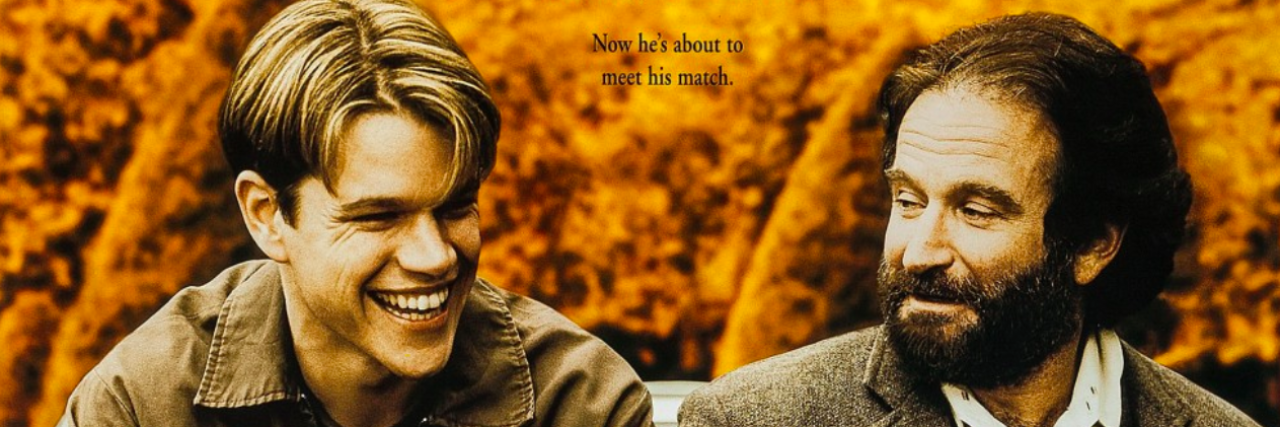“Do you like apples?”
“Well I got her number. How do you like them apples?”
One of the most iconic scenes in one of the most iconic movies—”Good Will Hunting.” I hate to admit this, but I watched “Good Will Hunting” for the first time only a few months ago. I know, I know. It’s a classic. It’s one of Robin Williams’ best performances. Minnie Driver is quite literally perfect in it. The “wicked smart” scene is legendary. Matt Damon and Ben Affleck’s chemistry is impeccable. The Boston accents are addicting. I get all of that. Still, I watched “Good Will Hunting” for the first time only a few months ago.
A little context for those of you who haven’t seen it, even though you, like me, had 23 years to do so: “Good Will Hunting” is about a young guy named Will from South Boston who is equal parts reckless and brilliant. Two traits that are displayed very early in the movie through two scenes.
An MIT mathematics professor, Gerald Lambeau, writes a math problem he has deemed nearly unsolvable on a chalkboard outside of his classroom. However, this unsolvable problem is solved overnight by a mysterious “math magician.” The entire mathematics department is dumbfounded the next morning, but can’t seem to unmask the genius responsible. But we as the viewers know the identity of said genius: Will, the MIT janitor.
Professor Lambeau improvises and writes a second problem on the chalkboard—one that took the faculty more than two years to solve. I bet you can guess what happened next. Will solves the problem overnight…again. However, this time he is caught in the act by Professor Lambeau and his assistant, Tom. Will rushes off, apologizing and cursing in that aforementioned accent, and disappears.
After figuring out that Will is the secret genius, professor Lambeau goes to find him. Here’s where we see the reckless side of Will. The next day Will and his ragtag crew are driving around town and they pass a guy who used to beat Will up in kindergarten. So, they pull the car over and start a nasty brawl that ends with Will getting arrested and thrown in jail. But professor Lambeau won’t let such a brilliant mind waste away behind bars. He convinces the judge to release Will, but there are two concrete conditions: 1. He has to meet with Professor Lambeau every week to work on mathematics, and 2. He has to see a therapist. Will scoffs at the notion of therapy, but agrees because anything is better than jail. After Will runs multiple therapists off, Professor Lambeau resorts to calling an old colleague and therapist named Sean (enter Robin Williams.) Things start rocky between Will and Sean, to say it nicely, but eventually their relationship blooms into something beautiful.
Towards the end of Will and Sean’s mandatory meetings, the most touching scene of the movie unfolds. Will walks into Sean’s office while Sean is looking over his personal file. Inside the file are pictures of Will’s body, bruised and broken at the hands of his foster father. After Sean shares his own stories of physical abuse, he approaches Will, holds up his folder, and says, “You see this… it’s not your fault.” Will shrugs, hangs his head, and mutters, “Yeah I know that.” But Sean continues. “It’s not your fault.” He says that same four-word-reprise over and over until Will’s walls crumble, causing him to collapse into Sean’s arms and release a tidal wave of tears he has been holding back for years.
I cry every time. And I feel deeply every time. Especially today.
My depression has been worse the past couple of weeks. Because of that, I decided to put work to the side this morning and spend some time with Jesus. If you’re not religious, that’s OK, hang with me. As I sat on my couch waiting for God’s voice, I heard Him echo those same four words: “It’s not your fault.”
Prior to this day, I, like Will, would have simply shrugged and let it roll off. But today I really needed to hear those words. You see, lately I’ve been really hard on myself. I feel like a pretty crummy pastor. Writing a sermon is like walking through quicksand. Picking up the phone to call a volunteer is like lifting an anvil. Preparing and planning for our church reopening feels like filling the ocean up one cup at a time.
I also feel like a pretty crummy husband, though my precious wife always tells me otherwise. Cleaning the apartment feels like running a marathon. Staying emotionally present and available is a heroic feat. Decision-making is overwhelming—should I cut the red wire or the blue wire, and will everything blow up if I choose wrongly?
That’s why those four words were a balm to my soul. Especially today. Because today I think I believed it.
I didn’t choose depression. I’m still struggling, not because I refuse to do the right things, but because change is a process. I can’t control what chemicals my brain dishes out on any given day. I’m not weak because of my struggle. I am doing the best I can. It’s not my fault. Maybe you can begin to believe that too? Maybe you can believe:
– It’s not your fault you can’t get out of bed.
– It’s not your fault you have anxiety attacks.
– It’s not your fault you lie awake in bed at night.
– It’s not your fault you have to take medicine.
– It’s not your fault you have to go to therapy.
– It’s not your fault you have to slow down.
Whether you hear God, Robin Williams or me say it, I hope you believe… it’s not your fault.
Image via IMDB


